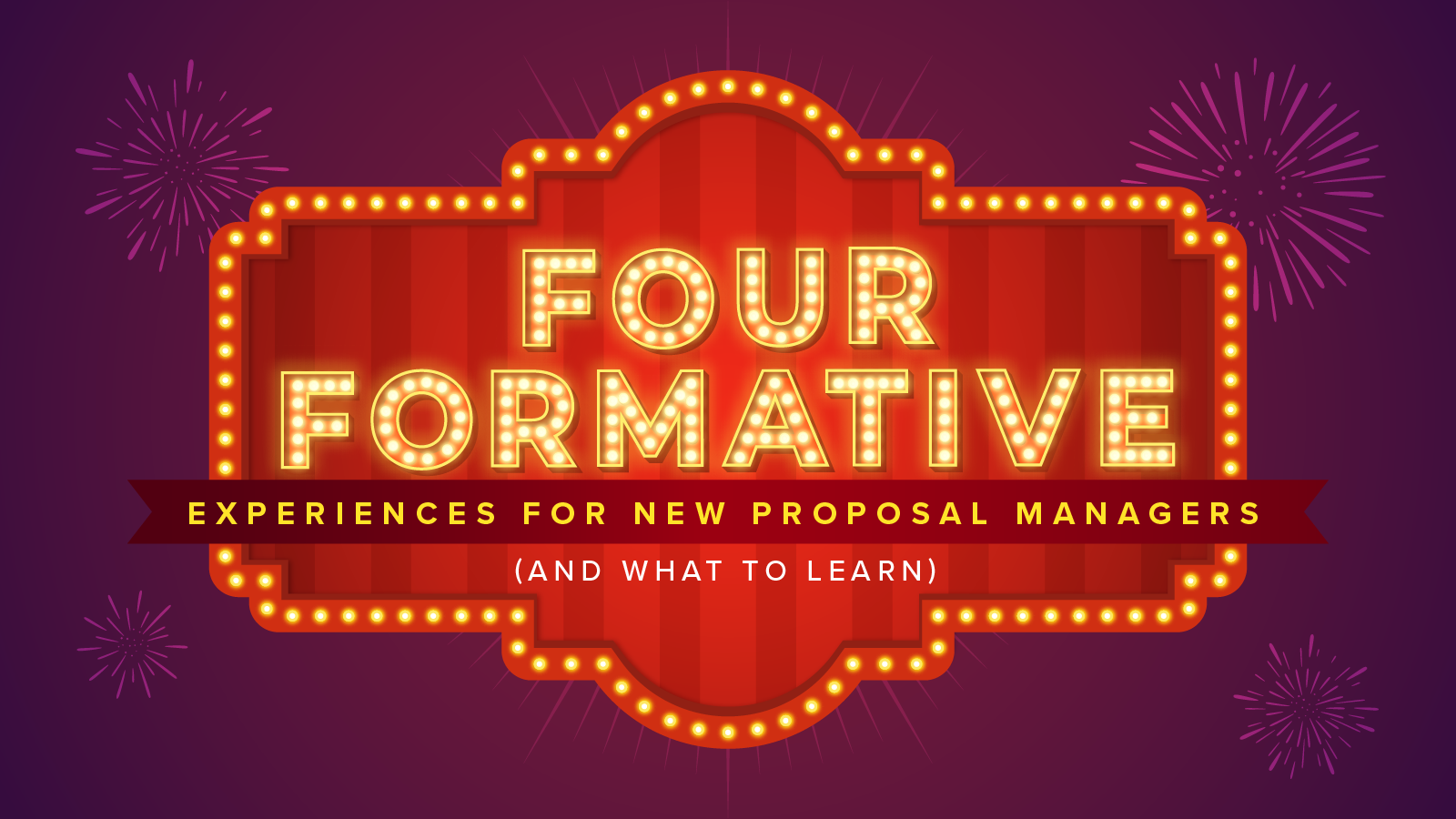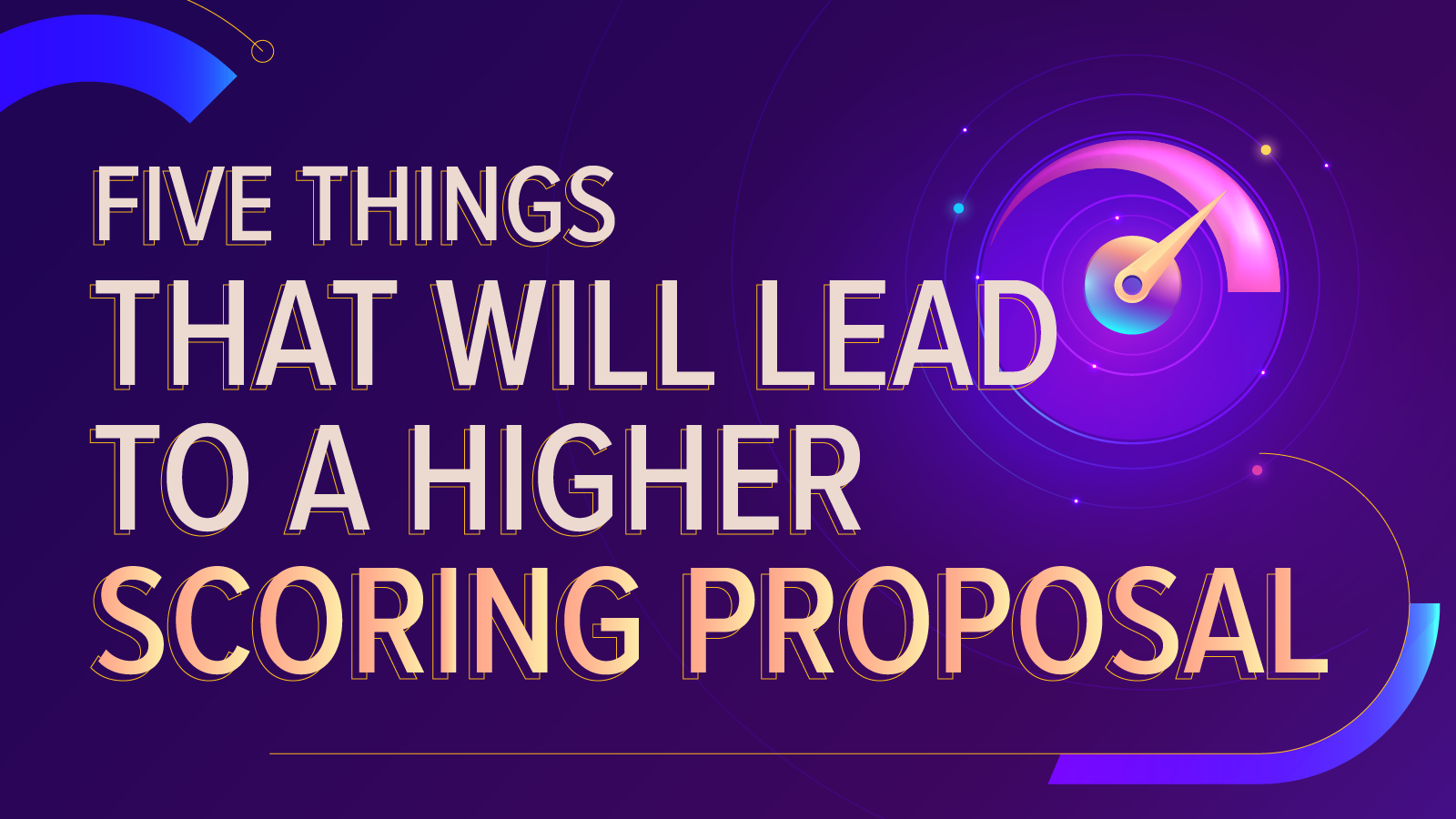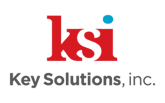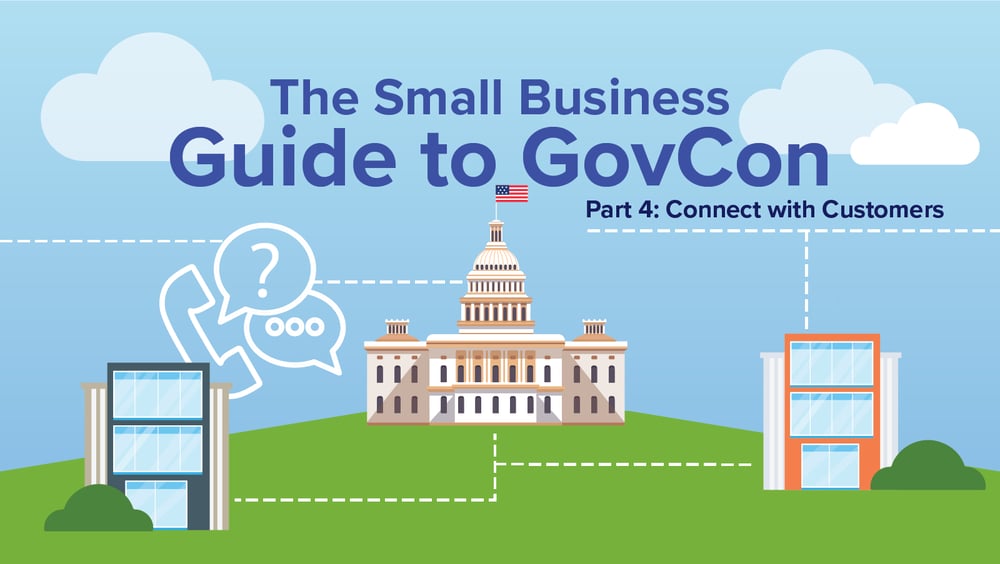
Contracting Officers (CO) are authorized agents empowered to bind the federal government to a contract for procuring goods or services.
COs are often risk-averse and prefer to do business with those they know and trust. Therefore, if you don’t have existing relationships with the COs you prioritized for your prospect list, you will need to devise a plan to transform those prospects into trusted partnerships.
This article is the fourth in our small business series that focuses on key strategies small businesses need to know to work with the federal government. Our Small Business Guide to GovCon includes the following posts:
- Introduction (Know Your Basics)
- Clarify Your Brand
- Confirm Your Prospects
- Connect with Customers
- Conquer Roadblocks
- Capture Opportunities
- Compete to Win
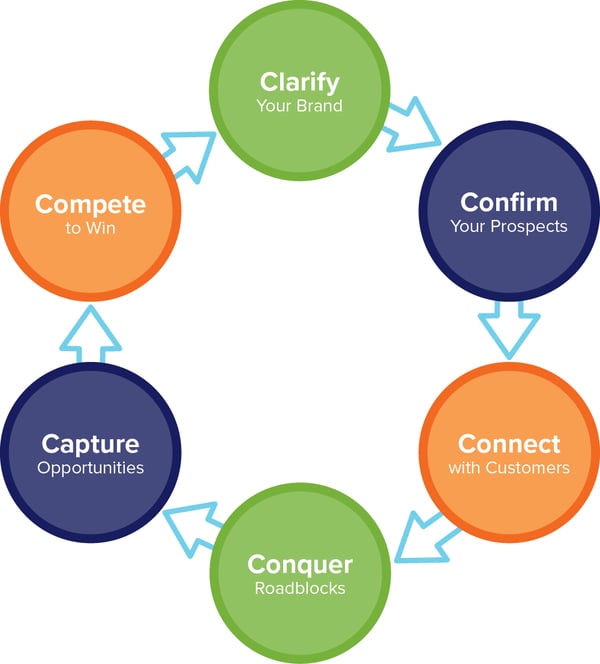
In this article—Connect with Customers—we'll explain how to build relationships with the COs you identified so you can successfully engage with them and win work.
Federal Acquisition Regulation 15.201 promotes transparency and communication between industry and the government throughout the early stages of an acquisition, including developing the acquisition strategy, the evaluation approach, and the requirements of the solicitation. In addition to encouraging early, open exchanges between industry and government agencies, FAR 15.201 enables agencies to understand industry capabilities and industry to grasp agency requirements fully. Therefore, it’s advantageous for both parties to work together and form strong partnerships.
Even though government agencies want to collaborate with federal contractors, connecting with the COs or other contacts on your prospect list takes time, patience, and perseverance. To increase your likelihood of success, consider using one or more of the following methods.
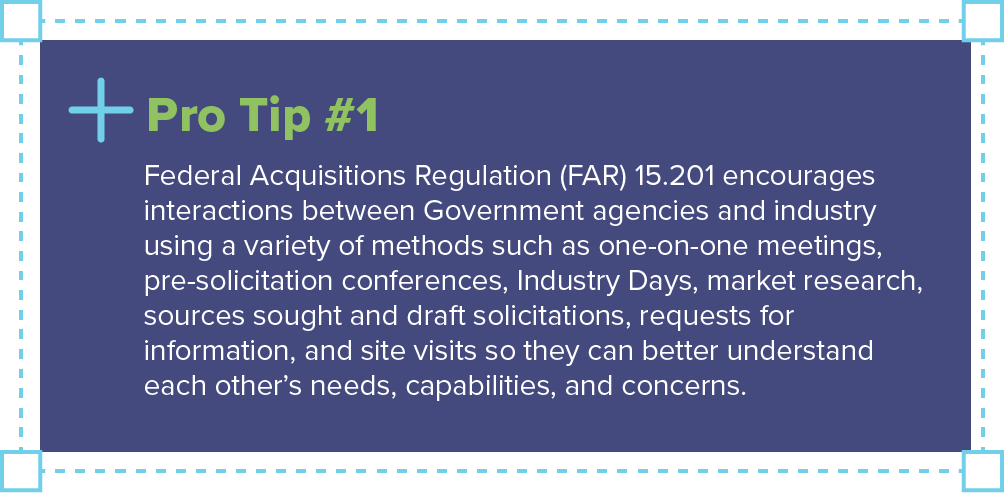
1. Cold Calls
Cold calling can be intimidating.
You’re an unknown to the person with whom you’re trying to connect, and the fear of rejection can stall your progress. However, you can increase your chances for success by developing a plan that guides you through the contact. Neil McDonnell, President of the GovCon Chamber of Commerce, recommends using a call plan template to prepare for and provide structure for cold calls. His template helps you define the objectives and purpose of your phone call and includes an icebreaker and a section for any questions you want to ask.
The intent is to provide a roadmap for the cold call that reduces resistance and facilitates relationship building. If you are unable to reach your point of contact and must leave a voicemail, be succinct and clear about the purpose of your call and leave your contact information, including a phone number. If you don’t hear back from a prospect, keep trying.
Also, keep in mind that if a CO has released a solicitation or request for proposal, they legally cannot talk to you independently of other potential offerors because doing so could inhibit fair competition.
2. Email
When reaching out to a CO (or another contact) by email, send plain text.
Government firewalls and SPAM filters may cause your emails to bounce back to you, so eliminate unnecessary graphics and links. Keep your email brief and to the point. Focus on the specific need or opportunity you’d like to discuss; how your company can meet the agency’s requirements, mission, and/or that buyer’s issues or goals; and include evidence of past performance to support your claims.
We also recommend including the solicitation number (if available and applicable) in the subject line of the email. Always include your complete contact information and your company’s CAGE code, so the prospect knows you’re registered in SAM and can contract with the government.
3. Networking
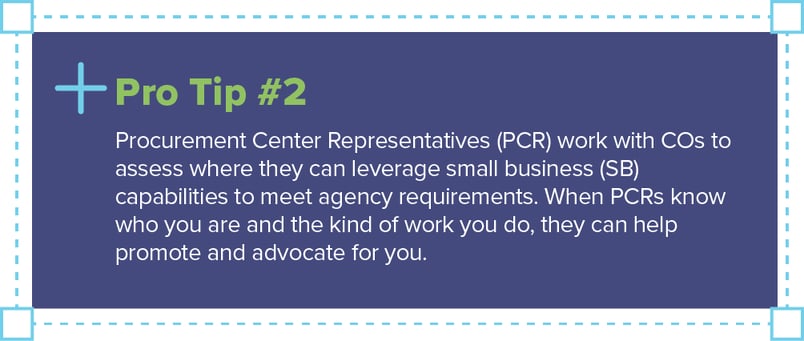
Networking is another way to connect with contracting officers and other potential contacts. Research your prospects by leveraging social media like Facebook and LinkedIn. Join the organizations and attend events they support. See if anyone within your existing network knows your targeted contact and ask that person to make an introduction.
Another way to connect with your prospects is to attend Industry Days or pre-proposal conferences. Government agencies regularly host “industry day” events to provide information about pending procurements, encourage competition, and create a level playing field for offerors. Industry days also provide opportunities to meet teaming partners and identify competitors.
Also, consider seeking assistance from the Small Business Administration (SBA) Procurement Center Representatives (PCR), who are staffed within the agencies you’re targeting. Because their role is to advocate for small businesses, their influence can make a difference in establishing relationships with prospective buyers.
4. Responding to Marketing
Federal agencies solicit the help and feedback of industry in a variety of ways, including:
- Capability Statement: A capability statement is a concise document that gives potential clients a clear picture of your company’s capabilities, unique value proposition, strengths, and past experience. Make sure your capability statement is relevant to the agency you're targeting. We also recommend working with professional designers to ensure your document is clean, modern, and stands out amongst the competition. Below you will find an example of a Capability Statement created by KSI.
- Request for Information (RFI): Government buyers issue RFIs to see if industry can solve their problems and meet their requirements. Responding to RFIs can get you on a buyer’s radar and possibly position you to help shape future solicitation requirements.
- Sources Sought: Sources Sought notices are similar to RFIs. The main distinction is that a Sources Sought notification aims to see if there are small businesses capable of fulfilling the agency’s requirements.
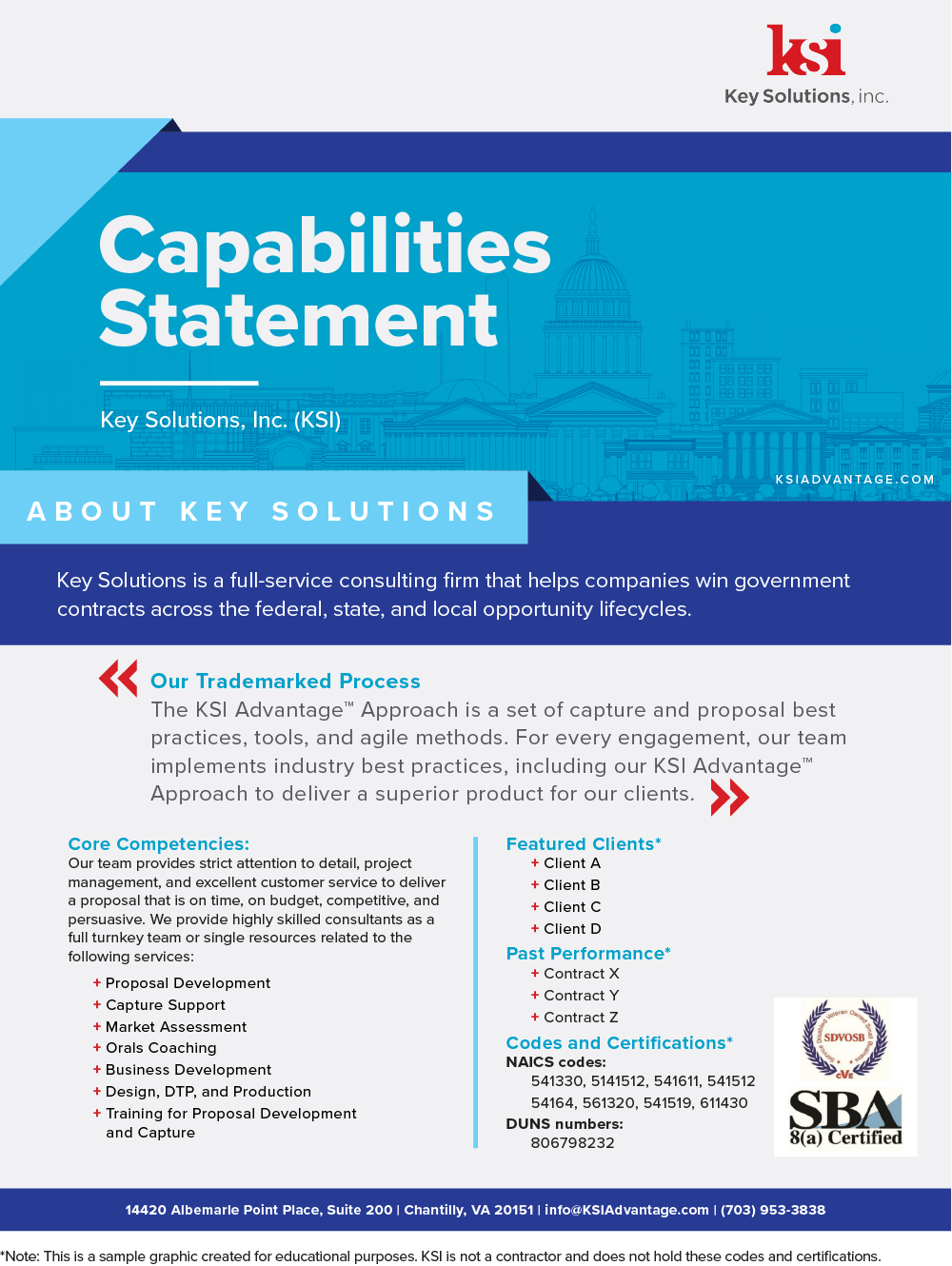
Being selective and strategic about responding to these requests for information can generate awareness about your company and encourage ongoing communication between you and the agencies you wish to serve. Regardless of the form of communication you choose, always have a defined objective or end goal for the communication.
For instance, perhaps your objective for a cold call is to end the conversation with a scheduled in-person meeting or for the CO to respond to your email with a request for your capability statement or a product demo.
Closing
COs are agents of the Government with the sole authority to solicit proposals and negotiate, award, administer, modify, or terminate federal contracts. Many COs are risk-averse and prefer to work with people they know. Therefore, you may find it difficult to get COs to engage with you if you're new to government contracting.
Consistency and polite persistence are key. The more you engage with your prospects, the more likely you will build awareness about your company and better position yourself for future awards. Careful planning focused on your objectives and using the strategies listed in this article will help you build strong relationships with the buyers and influencers in your chosen agencies.
As you interact with these contacts over time, you will learn about their wants, needs, and concerns. This information will likely reveal where your company has gaps or weaknesses that could hinder you from solving their problems. The next article in this series, Conquer Roadblocks, will provide strategies to eliminate or mitigate obstacles to doing business with your selected Government customers.
Your Call-to-Action
- Contact the SBA Procurement Center Representative within the agencies you targeted for help accessing and meeting your prospective COs.
References and Resources:
- Bradt, Judy. Government Contracts Made Easier. Middletown, DE: Summit Insight, 2019.
- McDonnell, Neil. “How to Make Successful Cold Calls to Federal Agencies”. LinkedIn LIVE, 2022 March 24, https://www.youtube.com/watch?v=3I11EsDnFro.





